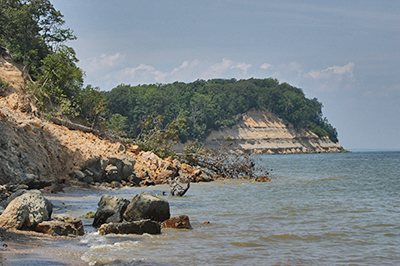Bill Aims to Improve Parks

By Kathy Knotts
The pandemic sent scores of Marylanders into state and county parks, a surge that surprised many and caught smaller facilities off-guard. With indoor gyms and fitness centers closed, citizens looked to outdoor recreation for exercise and relaxation.
Some parks along the Chesapeake Bay were routinely filled to capacity, meaning others had to be turned away. State Parks reported a record 292 capacity closures across 11 parks statewide last year. And the increased demand on the region’s local and state parks hasn’t slowed much.
In 2021, Lt. Gov. Boyd Rutherford and the Maryland Department of Natural Resources (DNR) announced a 45 percent increase in final attendance for Maryland State Parks in 2020 compared to the previous record-setting attendance in 2019. In 2020, Maryland State Parks welcomed 21.5 million visitors, compared to 14.9 million in 2019. By September, Maryland State Parks had already eclipsed the 2019 record.
Legislature before Maryland’s General Assembly this session includes a bill called the Great Maryland Outdoors Act. The act aims to create new state parks and expand recreational opportunities in the state, addressing overcrowding and aging infrastructure. The bill requests an increase in the number of full-time park service employees and requires DNR to develop a certain capital improvement plan. It also calls for the establishment of the Freedman State Historical Park in Montgomery County.
Annapolis Sen. Sarah Elfreth is the bill’s sponsor in the Senate, Del. Eric Luedtke (D-Montgomery) is moving the bill through the House.
“Maryland’s State Parks are critically important to our public health, environment, and economy. SB541 provides once-in-a-generation funding and accountability to our parks to address overcrowding, reverse underfunding, increase accessibility for more Marylanders, tackle a deep backlog of critical repairs, increase water access, prepare our parks for a changing climate, and more,” states Elfreth.
The bill is the result of recommendations proposed by the State Park Investment Commission, which the lawmakers co-chaired. A hearing before the Senate Budget and Taxation committee is scheduled for next week, and the House bill goes before the Environment and Transportation committee Feb. 23.
